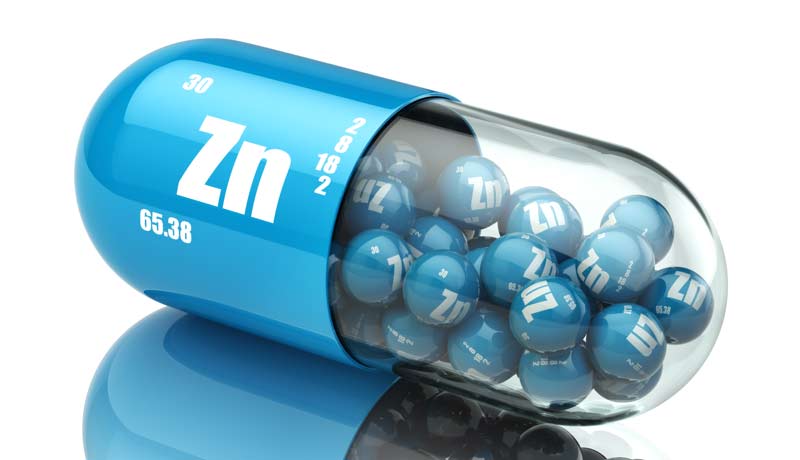[mashshare]

Like protein, which I discussed a few months ago, testosterone is an aspect of performance that athletes tend to stress about and of which there is an abundance of misinformation. The general narrative is that athletes should aim to have their testosterone as high as possible, which is why many supplement companies do a good business in natural “testosterone boosters.” But are these supplements worthwhile, and what role does testosterone actually play in athletic performance? In this article, I’ll examine this hormone and its role in sporting performance.
A Brief Science Primer on the Real Testosterone Research
Let’s examine the testosterone molecule a bit closer. Testosterone is the main male steroid hormone, driving the development of male sex characteristics. It’s typically considered the prime hormonal driver of anabolism, the process by which things grow–particularly muscle. While testosterone is primarily a masculine hormone, females do also possess it, just at far lower levels than men. This is one of the main reasons why females tend to have less muscle mass than their male counterparts.
Testosterone has several roles that may be interesting to athletes. It plays a role in training response by driving many of the positive adaptations athletes seek to elicit. This includes increases in muscle mass following hypertrophy-based strength training. Testosterone increases the rates of muscle protein synthesis post-training, which tends to occur over the long term as testosterone increases the transcription of genes driving increased muscle protein synthesis and, hence, muscle hypertrophy.
Physiological responses are well illustrated in studies where researchers gave subjects supplemental testosterone (which is banned by the World Anti-Doping Agency) and watched its impact on muscle growth. In a famous study from 1996 and published in the New England Journal of Medicine, a group of researchers compared increases in muscle size and strength in a group of subjects given testosterone and undertook strength training compared to those doing strength training alone.
The results were clear; supplemental testosterone had a huge effect on increasing muscle size and strength. The testosterone and exercise group increased muscle size more than 600mm in their quadriceps, compared to a loss of over 100mm for the exercise-only group. They also improved their bench press 1RM by 9kg while the exercise-only group stayed the same.
There is also emerging research suggesting that testosterone has short-term, non-genetic effects, such as altering energy metabolism and motor system function, both of which can support resistance training adaptations.
Testosterone Ignites the Drive to Train and Win
Testosterone also may affect motivation to train and compete. In a group of female athletes, Christian Cook and Martyn Beaven found that, over the course of five training sessions, circulating testosterone levels impacted the load chosen by the athletes to lift. Here, higher levels of testosterone were associated with greater training weights selected, indicating that when testosterone increases, so does motivation to train.
When #testosterone increases, so does the motivation to train and the chance of victory, says @craig100m. Share on XSimilar results have been reported in males. In a group of professional rugby players, higher pre-game testosterone levels were associated with an increased chance of victory while lower levels increased the chances of a loss. This adds support to the assertion that higher levels of testosterone impact motivation.
It’s clear that ensuring optimal testosterone levels will likely support athletic performance. But how can we do that? Some dietary aspects support adequate testosterone levels. The first is caloric adequacy – i.e., consuming sufficient calories. Long-term calorie restriction decreases testosterone levels.
Sufficient calories, zinc, and #VitaminD support optimal testosterone levels, says @craig100m. Share on XBoth zinc and vitamin D levels are linked to testosterone levels. Low levels of zinc are associated with a decrease in testosterone, so it’s logical to keep zinc levels optimal. Note that I said optimal and not as high as possible; there’s always a physiologically optimal intake, and too high an intake of zinc is associated with such problems as increased risk of cramping.

The recommended daily allowance (RDA) of zinc is 11mg, with the upper tolerable limit set at 40mg. Zinc-rich foods include:
- oysters
- beef
- crab
- pumpkin seeds
- green leafy vegetables
The same is true for vitamin D, low levels of which are associated with decreased testosterone. Once vitamin D levels are normalized, testosterone returns to normal. As I’ve previously written about vitamin D, athletes should ensure sun exposure, consumption of oily fish, and potentially a supplement, if required.
Higher levels of body fat are also associated with lower testosterone levels. While most athletes are not fat or obese, some specific events (throws) and sporting positions (rugby forwards and NFL players) are at an increased risk. Although their position may require more weight, this does carry a risk of lower testosterone levels, illustrating how a careful balancing act is required.
How Lifestyle Factors Can Make or Break an Athlete Hormonally
Lifestyle factors also impact testosterone levels. Increased levels of stress can alter the ratio of testosterone to cortisol, causing a drop in the relative levels of testosterone that are available to exhibit its positive effects. Females who use oral contraceptives also tend to have lower levels of testosterone and a reduced testosterone increase following resistance training.
The type of training undertaken by athletes can also impact testosterone levels. Both sprint training and resistance training increase testosterone levels acutely, while endurance based training often decreases testosterone. This may be one of the reasons why strength training has such a positive effect on endurance athletes; it can increase their levels of testosterone and, hence, motivation.
#Testosterone increases with sprint and resistance training and decreases with endurance training, says @craig100m. Share on XThese findings have been replicated several times. Bosco and Viru, two greats in the sports science field, reported that sprinters had higher testosterone levels than soccer players who, in turn, had higher levels of testosterone than endurance athletes – in this case, cross-country skiers.
There is also some evidence that testosterone levels can be manipulated by watching specific videos before training. In one study, Cook and Crewther examined the impact of watching different four-minute video clips (aggressive, training, funny, erotic, sad, and neutral) on testosterone response and performance in a strength training workout with twelve professional male rugby players.
The aggressive, training, funny, and erotic video clips increased testosterone, while the sad clip decreased testosterone. The erotic (2.1%), aggressive (5.4%) and training (4.6%) videos all led to significant performance in the weight training session (measured through a 3RM test). This shows quite nicely the impact our environment can have on testosterone levels, and that taking time to set the correct motivational climate is important.

Monitoring Athlete Testosterone Levels
While monitoring testosterone levels is expensive and slow, there is some evidence that, once the technology improves, the information it provides could help maximize the training response.
A paper from 2008 describes a study that put sixteen rugby players through four different strength training protocols and measured their testosterone response. Half of these players started a three-week training block, undertaking strength training sessions that elicited the greatest increases in testosterone. The other half undertook a three-week training block using the strength training sessions that produced the lowest testosterone response. After the initial three-week block, the players switched to the opposite training intervention.
When performing the training that elicited the greatest testosterone response, the players exhibited significant increases in both bench press and leg press 1RM. However, when undertaking the training intervention that elicited the lowest increase in testosterone, 75% of the players showed either no change or a reduction in 1RM performance. These results show the promise of using the individualized testosterone response to exercise to help guide training program design and enhance adaptations.
Getting Athletes on the Right Track Naturally and Ethically
We’ve seen that testosterone is an important hormone in athletic performance by:
- mediating long-term adaptations to exercise
- affecting mood and motivation in the short term
We can help our athletes reach their potential by:
- providing short-term boosts to testosterone levels through the use of motivational videos
- supporting chronic testosterone levels with dietary interventions
- programming training sessions to maximize their testosterone response and attain greater strength improvements
When it comes to testosterone-boosting supplements, there is no real evidence that these work, outside of potentially correcting nutritional deficiencies that may be impacting testosterone levels. As usual, it’s far better for athletes to try to correct these deficiencies by changing their diets as opposed to turning to supplements.
Since you’re here…
…we have a small favor to ask. More people are reading SimpliFaster than ever, and each week we bring you compelling content from coaches, sport scientists, and physiotherapists who are devoted to building better athletes. Please take a moment to share the articles on social media, engage the authors with questions and comments below, and link to articles when appropriate if you have a blog or participate on forums of related topics. — SF
[mashshare]




